Top 7 Natural Blood Thinners: Safe & Effective Options

25 Top Home Remedies That Really Work
Explore powerful home remedies for common health issues
Discover how to use everyday household ingredients to address minor ailments
Get practical tips for the safe and effective use of home remedies

25 Top Home Remedies That Really Work
Explore powerful home remedies for common health issues
Discover how to use everyday household ingredients to address minor ailments
Get practical tips for the safe and effective use of home remedies

25 Top Home Remedies That Really Work
Explore powerful home remedies for common health issues
Discover how to use everyday household ingredients to address minor ailments
Get practical tips for the safe and effective use of home remedies

25 Top Home Remedies That Really Work
Explore powerful home remedies for common health issues
Discover how to use everyday household ingredients to address minor ailments
Get practical tips for the safe and effective use of home remedies

25 Top Home Remedies That Really Work
Explore powerful home remedies for common health issues
Discover how to use everyday household ingredients to address minor ailments
Get practical tips for the safe and effective use of home remedies

25 Top Home Remedies That Really Work
Explore powerful home remedies for common health issues
Discover how to use everyday household ingredients to address minor ailments
Get practical tips for the safe and effective use of home remedies

25 Top Home Remedies That Really Work
Explore powerful home remedies for common health issues
Discover how to use everyday household ingredients to address minor ailments
Get practical tips for the safe and effective use of home remedies

25 Top Home Remedies That Really Work
Explore powerful home remedies for common health issues
Discover how to use everyday household ingredients to address minor ailments
Get practical tips for the safe and effective use of home remedies

25 Top Home Remedies That Really Work
Explore powerful home remedies for common health issues
Discover how to use everyday household ingredients to address minor ailments
Get practical tips for the safe and effective use of home remedies

25 Top Home Remedies That Really Work
Explore powerful home remedies for common health issues
Discover how to use everyday household ingredients to address minor ailments
Get practical tips for the safe and effective use of home remedies

25 Top Home Remedies That Really Work
Explore powerful home remedies for common health issues
Discover how to use everyday household ingredients to address minor ailments
Get practical tips for the safe and effective use of home remedies

25 Top Home Remedies That Really Work
Explore powerful home remedies for common health issues
Discover how to use everyday household ingredients to address minor ailments
Get practical tips for the safe and effective use of home remedies

25 Top Home Remedies That Really Work
Explore powerful home remedies for common health issues
Discover how to use everyday household ingredients to address minor ailments
Get practical tips for the safe and effective use of home remedies

25 Top Home Remedies That Really Work
Explore powerful home remedies for common health issues
Discover how to use everyday household ingredients to address minor ailments
Get practical tips for the safe and effective use of home remedies
Blood clotting, also known as blood coagulation, plays a vital role in wound healing. However, blood that coagulates too easily can form large blood clots that lead to life-threatening heart attacks, embolisms, and strokes.
Prescription blood thinners can help prevent blood clotting but often have side effects, including the risk of excessive bleeding and hair loss.
Certain herbs, ingredients, and nutrients have potent blood-thinning properties that may support healthy blood flow and lower the risk of cardiovascular disease—without significant side effects.
Let’s look at seven natural blood thinners you can use to promote normal blood clotting.
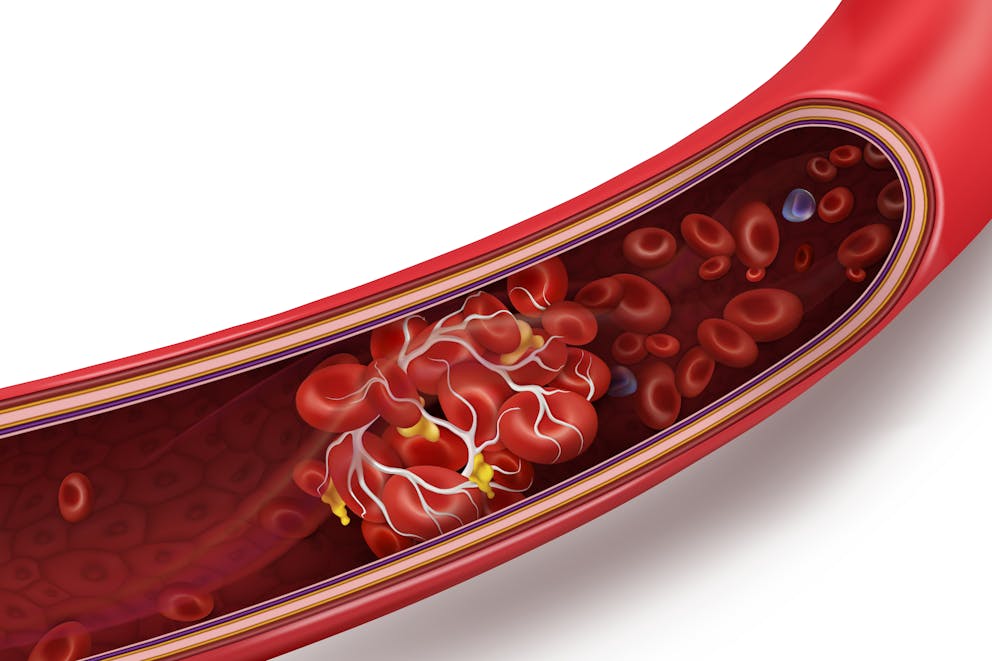 Seven natural blood thinners
Seven natural blood thinners
For patients with a history of blood clots, thrombosis, or other medical conditions, a prescription blood thinner may be necessary to prevent dangerous blood clotting.
However, natural blood thinners can provide profound health benefits for individuals with mild blood clotting disorders or those looking to prevent cardiovascular conditions while avoiding the detrimental side effects of synthetic blood thinning agents.
Here are seven natural blood thinners that can help reduce the risk of blood clots.
1. Vitamin E
Vitamin E is a blood thinner that can reduce the risk of blood clots, particularly in people with certain risk factors, such as diabetes, smoking, or obesity.
This study published in the Proceedings of the National Academy of Sciences found that vitamin E-rich foods and vitamin E supplements exert potent antiplatelet effects that can prevent blood clots by reducing the stickiness of platelets.
2. Garlic
Garlic has been used for its anti-clotting effects for centuries.
One of the main compounds in garlic that is responsible for its potent blood-thinning properties is allicin, which has been shown to reduce blood clotting and improve circulation.
Experts have found that garlic supplements can help reduce the risk of blood clots, improve cardiovascular health, and promote normal blood pressure. Allicin may also improve endothelial function, which is essential for the health of blood vessels and linked to a lower risk of heart disease.
H Fakhar and A Hashemi Tayer, research scientists, conclude their study comparing the effectiveness of garlic supplements with blood-thinning medication, “Garlic can inhibit platelet aggregation, its use is highly recommended as a supplementary treatment to reduce platelet aggregation.”
3. Nattokinase
Nattokinase is an enzyme derived from fermented soybeans. It’s considered a natural blood thinner because of its fibrinolytic activity. Fibrinolysis is the breakdown of fibrin, a mesh-like structure that holds blood clots together.
Nattokinase may help blocked arteries and directly degrade fibrin, which can help dissolve existing blood clots, significantly reducing the risk of ischemic stroke and cardiac arrest.
Watch the video below to learn how natural blood thinners can support your cardiovascular health.
4. Turmeric
Turmeric belongs to the ginger family and is a popular spice with potent blood-thinning effects.
Turmeric is a rich source of curcumin, a phytochemical with anti-inflammatory and anticoagulant properties.
Although curcumin is poorly absorbed, it has been shown to inhibit the activity of certain enzymes involved in blood clotting and platelet aggregation, reducing the risk of blood clots.
5. Apple cider vinegar
Apple cider vinegar has many health benefits and contains acetic acid, a naturally occurring acid with mild anticoagulation properties that may be beneficial in lowering the risk of blood clot formation.
Acetic acid also supports healthy blood sugar balance and has anti-inflammatory effects, possibly indirectly reducing blood clot formation.
Inflammation has been found to activate platelet aggregation, which essentially increases platelets' stickiness and contributes to the formation of blood clots.
6. Cod liver oil
Cod liver oil and other marine fish oils are rich sources of omega-3 fatty acids. Omega-3s have been shown to have several potential health benefits, including reducing inflammation, improving heart health, and reducing the risk of blood clots.
Research published in Open Heart suggests that omega-3 fats increase the flexibility of red blood cells and lower blood viscosity, which supports healthy blood circulation and inhibits the clumping of blood cells.
7. Pine bark extract
Pine bark extract, also known as pycnogenol, is derived from the bark of maritime pine trees. It contains several powerful phytochemicals, including flavonoids, procyanidins, and phenolic acids.
These phytochemicals have been shown to have anti-inflammatory and anticoagulant properties that support healthy blood circulation and promote normal blood clotting.
Preliminary research published in Panminerva Medica suggests that pycnogenol has impressive blood-thinning properties. It reduced blood clot formation more significantly than aspirin—a commonly prescribed blood-thinning medication—in individuals with recurring retinal vein thrombosis.
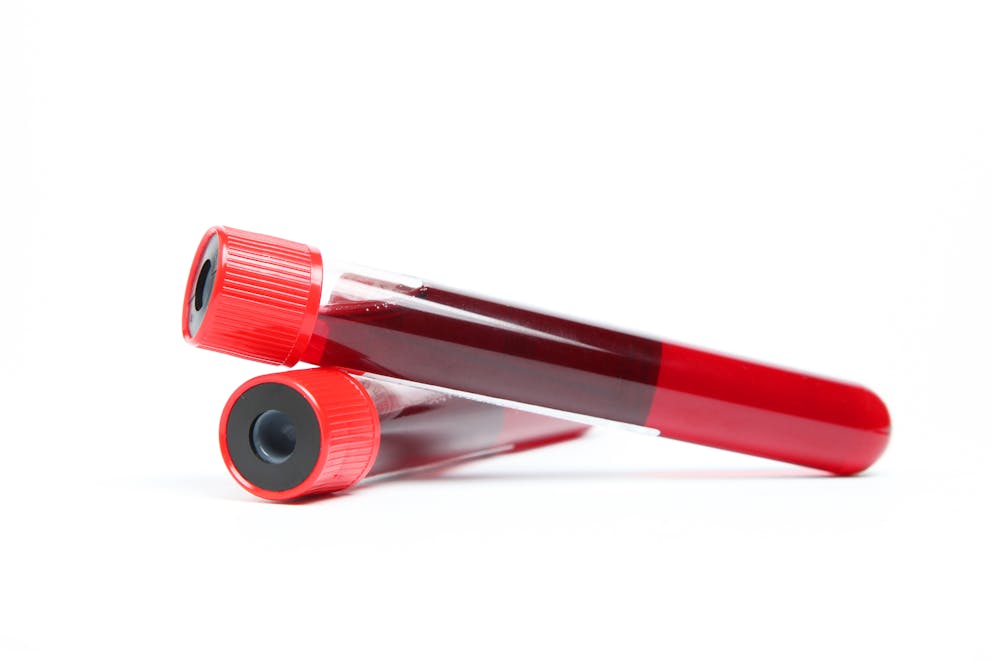
What are blood thinners?
Despite their name, blood thinners, typically referred to as anticoagulants, don’t actually make blood thinner. Instead, they help prevent blood clots from forming or growing larger.
A blood clot, also known as a thrombus, is a gel-like mass of red blood cells and proteins. Clots can obstruct the flow of oxygen-rich blood to tissues and organs, which can have serious health consequences, including stroke and heart attacks.
Blood thinners primarily work by interfering with blood's clotting process, which can be beneficial in certain medical conditions or after surgery.
Individuals with congenital heart defects, deep vein thrombosis, or pulmonary embolism may require blood-thinning medications to reduce their risk of excessive blood coagulation and associated health complications.
Natural vs. synthetic blood thinners
Natural blood thinners are compounds in certain foods and plants that have anticoagulant properties. A natural anticoagulant either inhibits the activity of clotting factors in the blood or reduces inflammation, a risk factor for the formation of blood clots.
Natural blood thinners tend to have fewer side effects than blood-thinning drugs but may also be less potent.
On the other hand, synthetic blood thinners are medications designed to interfere with proteins needed for blood clotting or have antiplatelet properties that prevent blood cells from sticking to each other.
Warfarin and heparin are common blood-thinning medications and are generally more potent than natural blood thinners. However, synthetic blood thinners have more side effects than natural ones and require regular monitoring and dosage adjustment to ensure they’re effective and safe.
If you are taking a thinning blood drug, it’s important not to discontinue your prescription medication without consulting with your doctor.
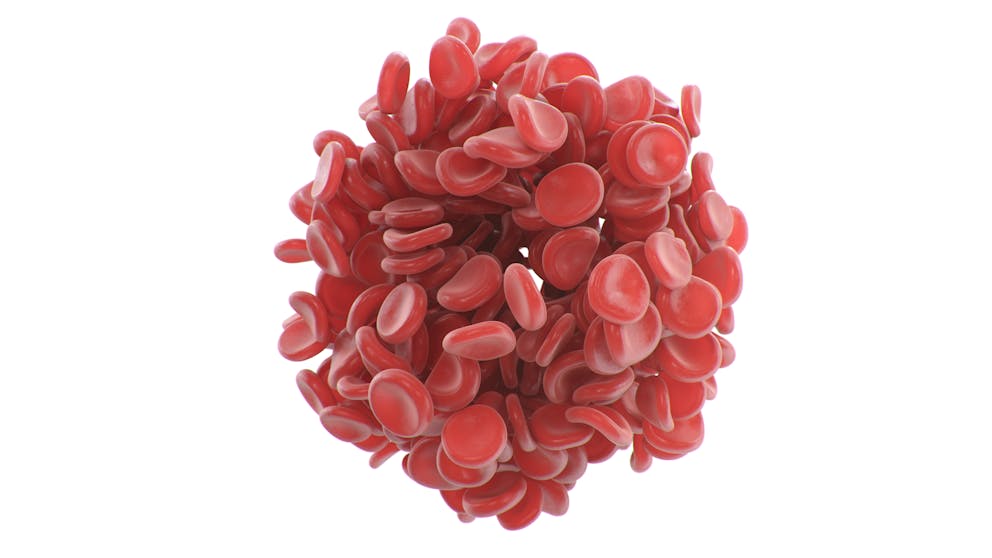
Health benefits of blood thinners
Blood thinners are linked to various health benefits, particularly for individuals at high risk of blood clots.
Here are some of the most common risk factors for the development of blood clots:
Prolonged immobility
Pregnancy
Smoking
Age
Birth control pills
Family history of blood clots
Surgery
Heart disease
“While blood thinners primarily prevent the formation of blood clots and promote normal blood circulation, they’re also linked to various other health benefits,” says Dr. Berg.
Some of the potential health benefits of blood thinners include:
Lower risk of heart attacks and stroke
Block excessive blood clotting after surgery
Counteract sticky platelets due to inflammation
Promote healthy blood flow
Prevent blood coagulation linked to certain blood cancers
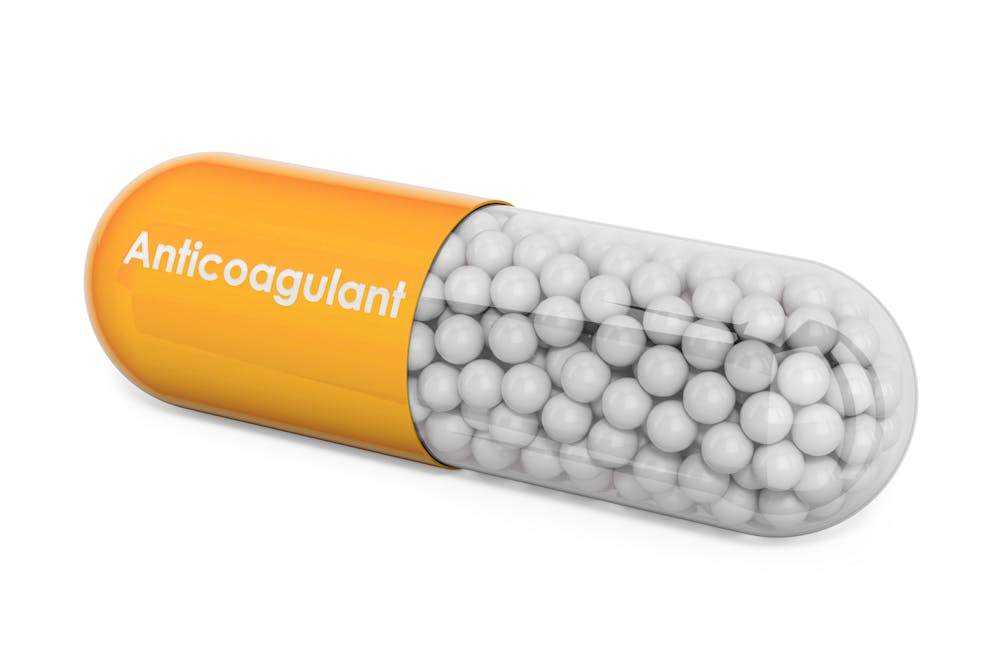
Are natural blood thinners safe?
If you want to support circulation and lower your risk of stroke and heart attack, taking natural blood thinner is generally safe and well tolerated.
Natural blood thinners may also help you avoid potential side effects of blood thinning medications, including hair loss, gastrointestinal issues, headaches, and joint issues.
However, if you have a blood clotting disorder or are taking blood-thinning medication, it’s essential to discuss the use of natural blood thinners with your healthcare provider. Combining natural blood thinners and prescription medications can increase the risk of excessive bleeding, heavy menstrual blood loss, and bleeding gums.
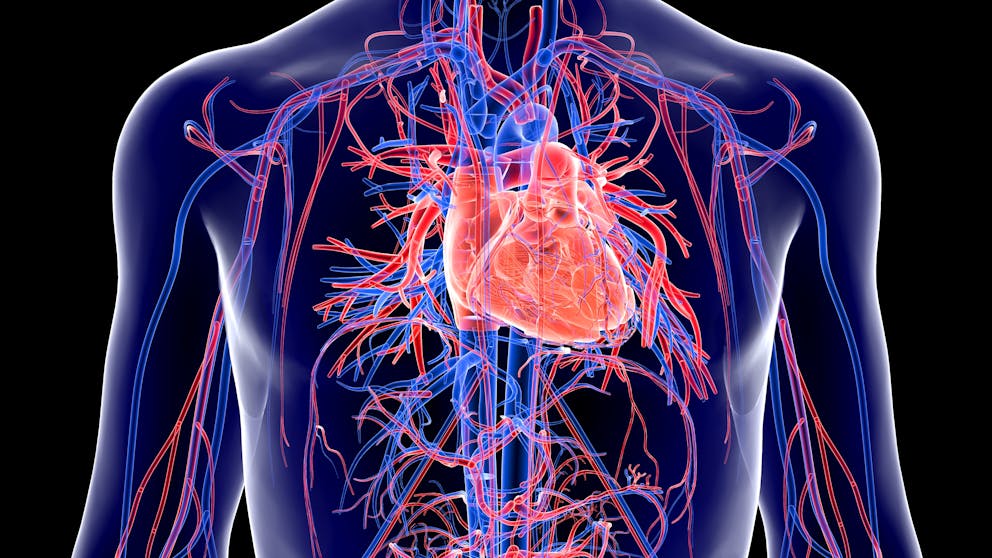
Key takeaways
Natural blood thinners, including marine fish oils, garlic, turmeric, vitamin E, and pine bark, have blood-thinning properties that can help reduce blood clot formation and lower the risk of stroke and heart attacks.
Taking natural blood thinners is generally safe and avoids the potential side effects of prescription medication. However, some medical conditions may require blood thinning drugs, and it’s best to discuss natural blood thinners with your doctor if you have a blood clotting disorder or are taking a synthetic anticoagulant.
FAQ
1. What are blood thinners?
Blood thinners have anticoagulant properties that interfere with blood clotting processes and can help prevent the formation of blood clots. Despite the name, blood thinners don’t actually thin blood but prolong coagulation time and reduce the risk of blot clot formation.
2. Are natural blood thinners better than synthetic ones?
Natural blood thinners can be an excellent choice for managing mild blood clotting issues or for individuals who want to promote a healthy cardiovascular system without the risk of side effects linked to synthetic blood thinning medication.
In contrast, synthetic blood thinners are potent drugs that may be necessary to prevent life-threatening blood clots in individuals with deep vein thrombosis, pulmonary embolism, or other types of blood clotting disorders.
3. Can I use natural blood thinners while on blood-thinning medication?
Natural blood thinners, such as fish oil, garlic, or vitamin E, can interact with blood-thinning medication and may increase the risk of bleeding.
It’s important to discuss using a natural blood thinning agent in combination with anti-clotting medication with your healthcare provider to prevent bleeding complications or other potential interactions.
4. What are the best natural blood thinners?
Evidence suggests that vitamin E, garlic, turmeric, cod liver oil, and pine bark are natural compounds with potent blood-thinning properties. Other natural blood thinners are grape seed extract and ginkgo biloba.
5. Is there a natural substitute for blood thinners?
Several natural blood thinners have been found to have similar blood-thinning properties to synthetic blood-thinning medication. Garlic, turmeric, vitamin E, and pine bark have all been found to have potent anticoagulation properties that can help lower the risk of blood clot formation.
6. What drinks can thin your blood?
Drinking plenty of water to stay hydrated is crucial to prevent abnormal blood clotting. In addition, apple cider vinegar drinks, green tea, and ginger tea have been found to promote healthy blood coagulation and appear to lower the risk of blood clot formation.
7. What fruit is a natural blood thinner?
Cranberries and blueberries contain salicylate, a naturally occurring phytochemical with blood-thinning properties.
8. Are natural blood thinners safe to use?
Using natural blood thinners is generally well-tolerated and safe. However, it’s best to discuss using natural blood thinners with your doctor if you take anticoagulant prescription medication or have a bleeding disorder to avoid the risk of excessive bleeding.
9. What is the purpose of blood thinners?
Blood thinners inhibit blood clotting proteins in the bloodstream, decreasing the risk of blood clots forming and preventing existing blood clots from growing larger. Reducing blood clot formation lowers the risk of heart disease and stroke, especially for individuals with congenital heart disease, deep vein thrombosis, or pulmonary embolism.
10. What are the health benefits of natural blood thinners?
Natural blood thinners found in certain foods or plant extracts have a blood-thinning effect by preventing blood clots from forming without the risk of side effects of blood thinning medication, including hair loss, stomach pain, and headaches.
Previous blog
Health Benefits of Sardines on KetoTags

Popular
08/21/2024
47.1K views
05/22/2024
41.3K views
11/18/2024
244.8K views
03/18/2024
11/21/2022




